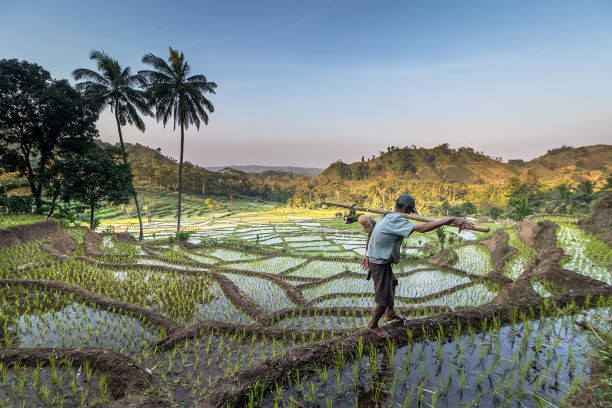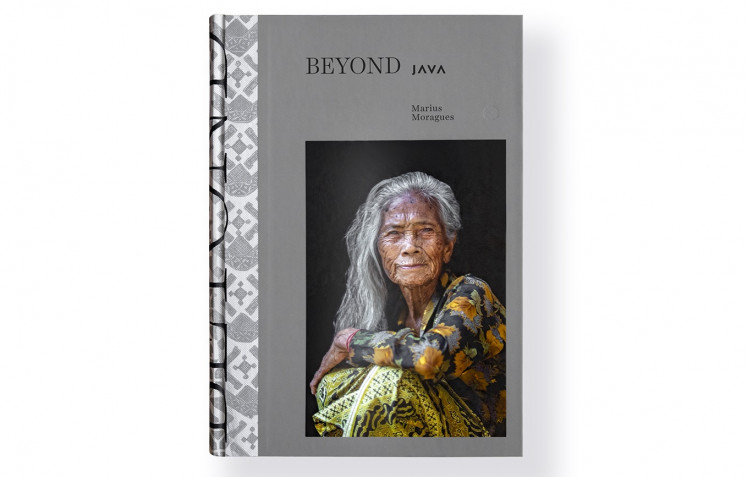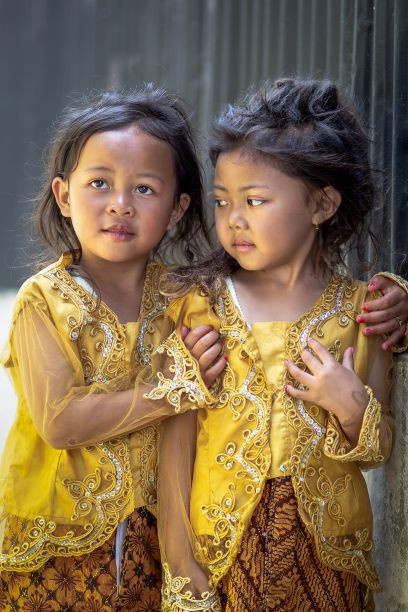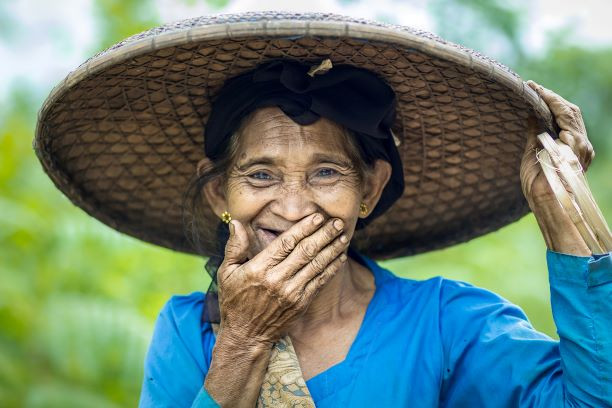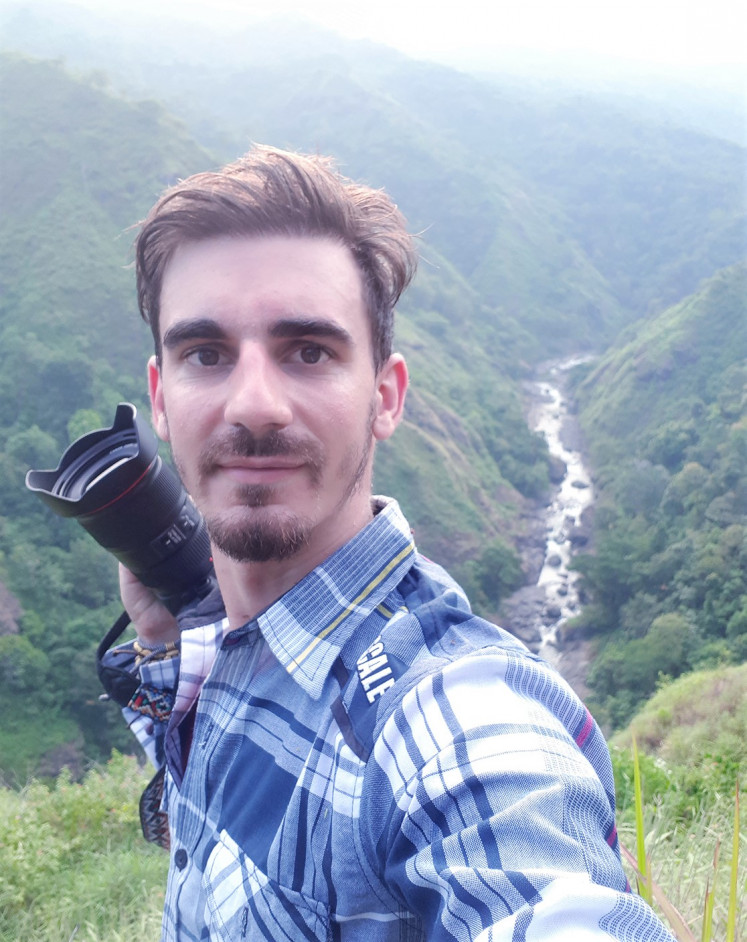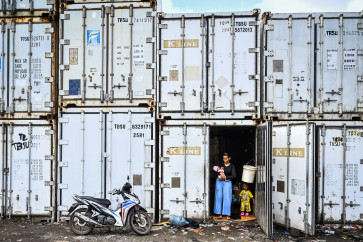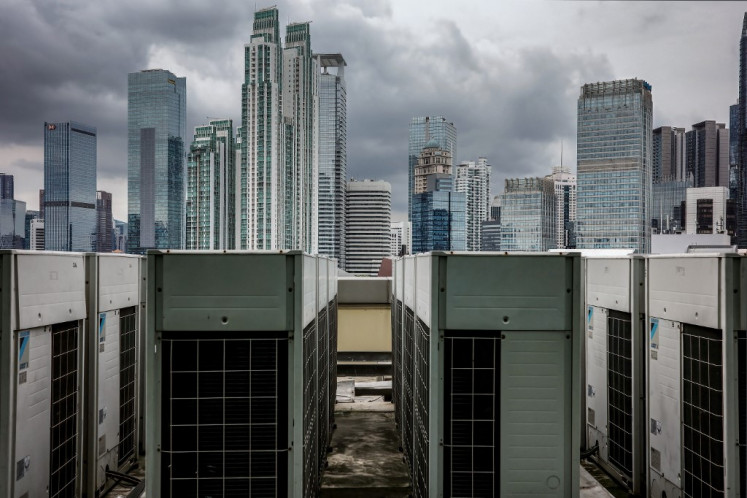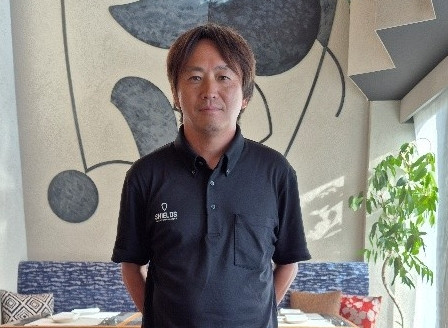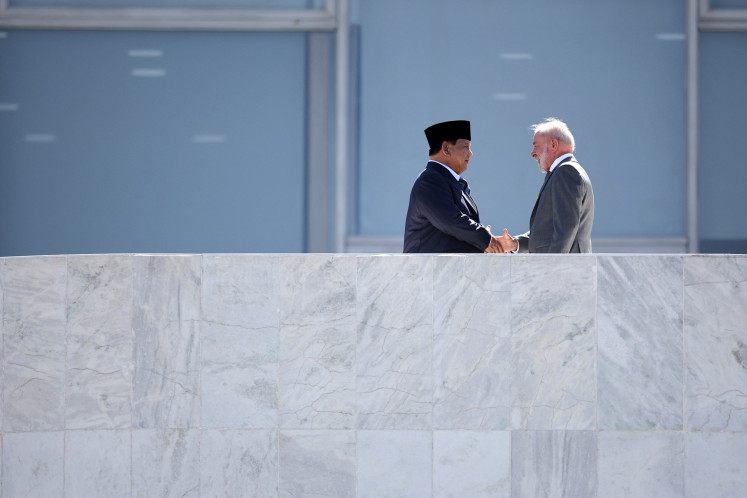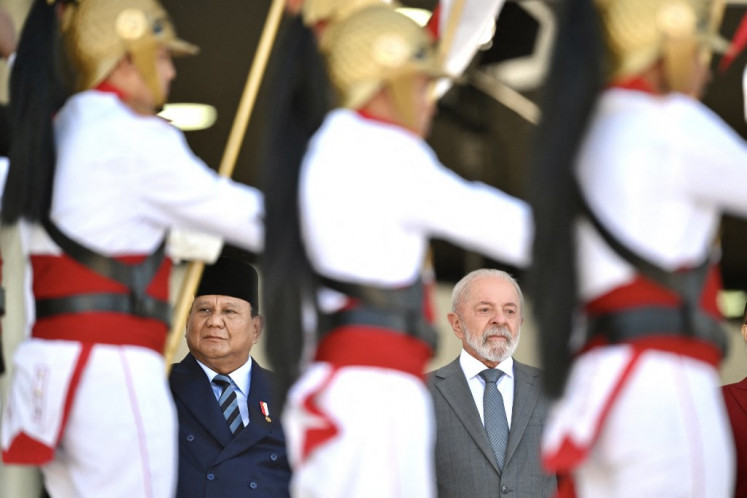Popular Reads
Top Results
Can't find what you're looking for?
View all search resultsPopular Reads
Top Results
Can't find what you're looking for?
View all search resultsMarius Moragues chronicles Indonesia, one photograph at a time
French photographer Marius Moragues explores and chronicles Indonesia through his lens.
Change text size
Gift Premium Articles
to Anyone
I
f it weren’t for the pandemic, French photographer Marius Moragues would still be in Indonesia, discovering new stories by the day.
While he was more than happy to return to France and see his family after more than two years, Moragues said that he would rather be back in Indonesia to continue his exploration.
Moragues is working on “Imperfect Frame”, a project that involves him exploring and documenting Indonesia by motorcycle over a period of 10 years.
Working title: French photographer Marius Morangues’ upcoming title,' BEYOND: Java', is the first volume in his 'BEYOND' series that attempts to capture his decade-long Indonesian journey. (Courtesy of Marius Moragues/-)The project will be published in the BEYOND series of photography books, with the first volume, BEYOND: Java, slated for release sometime this year. The book features 150 photographs from Moragues’ two-year journey around the island.
“I always tell everyone that I didn’t choose Indonesia, but [that] Indonesia chose me,” he told The Jakarta Post from France by videoconference.
Moragues first visited Indonesia as a backpacker in 2015, armed with his adventurous spirit and a list of countries he wanted to visit and do volunteer work. His travels brought him to Southeast Asia, and Indonesia was last on his list.
“When I arrived here – it was in Jambi – it was such a nice experience because I got directly thrown by people’s kindness and warmth. It doesn’t mean that other countries are not kind and warm, but Indonesia was the top of the list, something I’ve never experienced before. It really changed my life,” he recalled
After spending a month teaching English, Moragues had made so many friends that they were reluctant to see him leave. That convinced him to extend his visit by one month, then two and then three, and he eventually ended up extending his stay by five years.
Cultural locks: Two girls sport 'gimbal' (dreadlocks), the iconic hairstyle of the Dieng people in Wonosobo regency, Central Java. (Courtesy of Marius Moragues/-)A landscape photographer by trade, Moragues is a self-described perfectionist, adjusting lighting and composition to frame the perfect shot. But when he came to Indonesia, he became dissatisfied with his approach.
“The philosophy behind ‘Imperfect Frame’ is that I engage with the people. Behind every imperfection, there is strength and inspiration,” he said. “Everyone has a story, something to say, something to [tell].”
When he hit the cross-Java roads on his motorcycle in 2018, the connections he made the people became the most cherished memento of his journey. He found that everywhere he went, he felt right at home.
Traveling to remote villages where, more often than not, the inhabitants had never seen a foreigner before, Moragues noted their shyness as well as their inherent curiosity that was sparked immediately when he spoke to them in Indonesian.
“No matter the subject, I always try to build the connection. I always try to smile – that’s the number-one key that you always have to do – and [immersing myself] in the middle of the action,” he said.
One of the most memorable moments of his journey so far was when he set out from Jakarta on his motorcycle. Heading to Ciptagelar village in Sukabumi regency, West Java, the roads were twisting and slippery, and at some point, he fell off his motorcycle.
“This is where I lost my trust, because I was uncomfortable and I was actually scared, so I decided to leave my motorcycle and continue my journey on foot. I knew that the village was pretty far, like seven kilometers.
“Right when I fell off and continued on foot, it took me five minutes to meet a woman from afar. Her name was Ninih Marsih and she was a farmer. She was dressed in this traditional dress and caping,” he recalled, referring to the saucer-like bamboo cap typically worn by farmers.
After greeting Ninih, Moragues made small talk and discovered that the 80-year-old was actually from Ciptagelar. When he told her that he was walking to the village, she reacted in surprise and told him it was better to go by motorcycle.
“At some point, she gave me some bright inspiration and motivation, and told me something like how I can do it and it wasn’t that far. So in a way, this encounter was a sign to help me trust in myself. So I took some steps backwards and continued my journey by motorcycle, all thanks to Ninih Marsih,” he said.
Marius Moragues (Courtesy of Marius Moragues/-)Much of Moragues’ journey is focused on areas outside of metropolises, as he said that he was averse to skyscrapers and concrete.
“It’s like in France, it’s like in the United States. All you see are people who are modern-minded. You can see bars and clubs every day. There is no difference with the mindset I can find in the people of France, for instance,” he said.
While he conceded that the urban lifestyle had its merits, which he enjoyed on occasion, it wasn’t for him. After all, life outside of the Big Durian is what attracted Moragues to Indonesia in the first place.
“The people live in such a relaxed vibe. They don’t have to think about their meetings tomorrow, the rent, the lease. They just grow their own rice outside their own homes, cultivate their own vegetables, go to the market to buy their meats,” he observed, pointing out the high desirability of a stress-free lifestyle.
Going forward, he plans to expand his journey to other islands in the archipelago for the successive volumes in his photographic series. Bali, the “Island of the Gods”, would be his next destination in 2021, followed by Nusa Tenggara (2022), Kalimantan (2023), Sumatra (2024), Sulawesi (2025) and then Maluku (2026), before ending his journey in Papua in 2027.
While his photographic travel chronicle – which is supported by the Tourism and Creative Economy Ministry – is intended to draw tourism to the country, Moragues wants potential visitors to avoid sticking to the usual destinations like Bali and Lombok.
“I want them to go beyond, and this is part of the philosophy. That’s why I named [the series] BEYOND. This is what I try to do myself. I try to go beyond the borders of what people would see, and I want to present Indonesia from my own eyes,” he said.
“This is important, because I want to show [foreign visitors] that Indonesia is not just Bali, is not [just] about beaches and bars and resorts. Let’s face it, Indonesia wouldn’t be so very enjoyable if it wasn’t for the people.” (ste)

